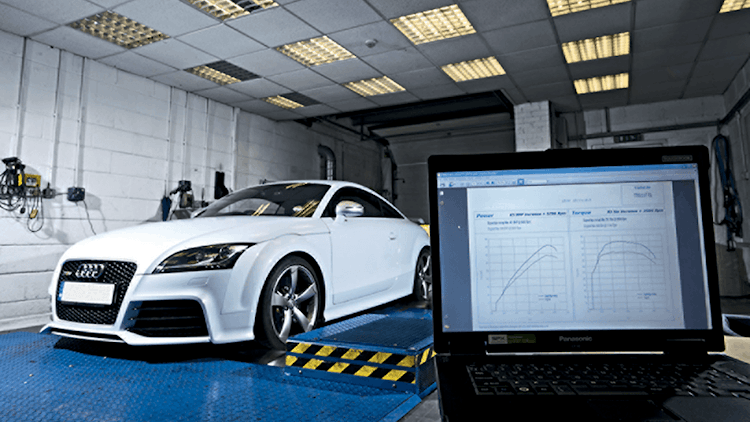When it comes to improving the performance of your car, car engine remapping is one of the most effective and popular methods. This process involves modifying the software in your car’s Engine Control Unit (ECU) to enhance its power, efficiency, and overall driving experience. In this article, we will explore the various benefits and considerations of car engine remapping, helping you understand why it’s a choice many car owners are opting for today.
What is Car Engine Remapping?
Car engine remapping, also known as ECU tuning, refers to the process of adjusting the software of the car’s engine control unit. By altering the settings, the engine can be optimized for better performance. This could mean increasing horsepower, improving fuel efficiency, or making your vehicle more responsive Professionalautomechanic.com. The process requires specialized knowledge and equipment to ensure that the changes are beneficial without compromising the safety or reliability of the engine.
Car engine remapping is typically done by professional mechanics or specialized tuning companies. They use advanced diagnostic tools to connect to your vehicle’s ECU and adjust the settings. The key benefit is that it allows for a more tailored driving experience. By focusing on the engine’s unique characteristics, a remap can unlock hidden potential that may otherwise go unused.
The Advantages of Car Engine Remapping
Car engine remapping can bring about several advantages, depending on the driver’s needs and the type of vehicle. Whether you’re looking for a performance boost or trying to save on fuel costs, remapping can help achieve these goals. One of the most noticeable changes after a remap is the increase in engine performance. For performance enthusiasts, car engine remapping can unlock significant power and torque improvements, giving your car better acceleration and a more thrilling driving experience.
On the other hand, car engine remapping is also a great option for those who prioritize fuel efficiency. By adjusting the fuel-to-air ratio and other parameters, a remap can make your engine run more efficiently. This means you could see a reduction in fuel consumption, ultimately saving you money at the pump. The fine-tuning aspect of remapping allows the engine to operate more smoothly, which can also lead to a longer lifespan for your vehicle’s internal components.
How Does Car Engine Remapping Work?
Car engine remapping works by altering the parameters stored in your car’s ECU. Modern vehicles are equipped with an ECU that controls many aspects of the engine’s performance, including fuel injection, timing, and turbocharging. During a remapping session, a technician accesses the ECU to adjust these parameters to improve the engine’s output and efficiency.
When you opt for car engine remapping, the first step typically involves reading the existing software to create a backup. After this, the technician will make modifications based on the specific goals of the remap. For example, if you’re looking to increase power, the technician might optimize the fuel maps or change ignition timing. If fuel efficiency is the priority, they may adjust the turbo boost or modify the air/fuel ratio.
Once the changes are made, the new software is uploaded to the ECU, and the vehicle undergoes a series of tests to ensure that the remap is functioning correctly. The process is not reversible unless you choose to restore the original settings. However, with the proper tuning, the benefits of car engine remapping can last a long time, and the process can often be done without affecting the warranty on your vehicle.
Is Car Engine Remapping Safe?
One common concern among car owners is whether car engine remapping is safe for their vehicle. In general, car engine remapping is a safe process, but it’s essential to ensure that it’s done by experienced professionals. A reputable technician will make sure that the remap is done with consideration for the engine’s condition and the manufacturer’s specifications. Proper tuning ensures that the vehicle performs optimally without causing damage to key components.
That said, car engine remapping can sometimes have adverse effects if done incorrectly. Over-stressing the engine by pushing it too far can lead to mechanical issues, such as overheating, premature wear, or even engine failure. It’s important to understand that remapping does alter the way your car’s engine behaves, and while it can increase performance, it’s crucial that the modifications are made with caution and a clear understanding of the engine’s limits.
Car Engine Remapping and Warranty
Another concern that car owners may have about car engine remapping is how it affects their vehicle’s warranty. While many warranties cover general repairs and maintenance, some manufacturers may void warranties if the car’s ECU has been tampered with. However, not all manufacturers take such a strict stance on remapping. In many cases, the remapping is reversible, and the vehicle can be returned to its original settings if necessary.
If you’re considering remapping your car’s engine, it’s always a good idea to check with the manufacturer or your dealership to understand how it may affect your warranty. Many reputable tuning shops will also offer a warranty for their remapping services, giving you added peace of mind.
Conclusion
Car engine remapping is a powerful tool that can unlock a wealth of benefits for your vehicle, including increased performance, improved fuel efficiency, and a more engaging driving experience. While there are some risks associated with the process, the advantages far outweigh the potential downsides when it’s done by skilled professionals. Whether you’re looking to enhance your car’s power or reduce your fuel consumption, car engine remapping is a worthwhile consideration. Just ensure that the remapping is done properly, and you can enjoy a more dynamic and efficient ride for years to come.






